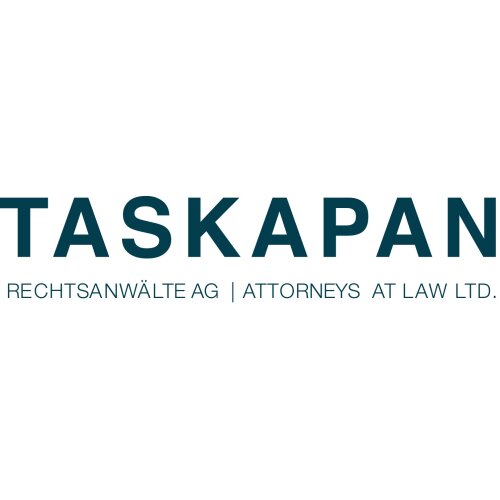Best Asylum Lawyers in Liechtenstein
Share your needs with us, get contacted by law firms.
Free. Takes 2 min.
Or refine your search by selecting a city:
List of the best lawyers in Liechtenstein
About Asylum Law in Liechtenstein:
Asylum in Liechtenstein is governed by the Asylum Act of 2013. This law outlines the procedures and requirements for individuals seeking asylum in the country. Asylum may be granted to individuals who are at risk of persecution in their home country due to their race, religion, nationality, political beliefs, or membership in a particular social group. It is important to understand the legal framework surrounding asylum in Liechtenstein to ensure that your rights are protected.
Why You May Need a Lawyer:
Seeking asylum can be a complex and challenging process. It is essential to have legal representation to navigate the asylum system effectively. A lawyer can help you understand your rights, gather evidence to support your asylum claim, and represent you in court proceedings. Additionally, a lawyer can help you prepare for interviews with immigration officials and ensure that your asylum application is completed accurately and submitted on time.
Local Laws Overview:
In Liechtenstein, individuals must file their asylum applications with the Office of Immigration within 48 hours of their arrival in the country. The government will assess each asylum application based on the individual's circumstances and the legal requirements outlined in the Asylum Act. It is crucial to comply with all legal procedures and requirements to increase your chances of a successful asylum claim.
Frequently Asked Questions:
1. Can I apply for asylum in Liechtenstein if I am already in the country?
Yes, you can apply for asylum in Liechtenstein if you are already in the country. It is essential to submit your asylum application to the Office of Immigration as soon as possible.
2. How long does the asylum process take in Liechtenstein?
The asylum process in Liechtenstein can vary in length, but it typically takes several months to receive a decision on your asylum application. It is essential to be patient and cooperate with immigration officials throughout the process.
3. What can I do if my asylum application is rejected?
If your asylum application is rejected, you have the right to appeal the decision. It is crucial to seek legal advice from a lawyer to determine the best course of action in your specific case.
4. Can I work in Liechtenstein while my asylum application is pending?
Asylum seekers in Liechtenstein are generally not allowed to work while their asylum applications are pending. However, there are certain limited exceptions to this rule. It is essential to consult with a lawyer to understand your rights and options.
5. What support is available for asylum seekers in Liechtenstein?
Asylum seekers in Liechtenstein may be eligible for financial assistance, housing, and medical care through the government. Additionally, there are organizations and non-profit groups that provide support services to asylum seekers in the country.
6. Can family members join me in Liechtenstein if I am granted asylum?
Yes, if you are granted asylum in Liechtenstein, you may be eligible to apply for family reunification to bring your immediate family members to the country. It is essential to consult with a lawyer to understand the requirements and procedures for family reunification.
7. What happens if I leave Liechtenstein while my asylum application is pending?
If you leave Liechtenstein while your asylum application is pending, your application may be deemed abandoned, and you may lose your right to pursue asylum in the country. It is crucial to consult with a lawyer before making any decisions that could affect your asylum status.
8. Can I be deported from Liechtenstein if my asylum application is rejected?
If your asylum application is rejected, you may be at risk of deportation from Liechtenstein. It is essential to seek legal advice from a lawyer to explore options to challenge the decision and avoid deportation.
9. How can I find a lawyer to help me with my asylum application in Liechtenstein?
You can contact the Liechtenstein Bar Association for a list of qualified lawyers who specialize in immigration and asylum law. It is important to choose a lawyer who has experience handling asylum cases and can effectively represent your interests.
10. What documents do I need to support my asylum application in Liechtenstein?
When applying for asylum in Liechtenstein, you may need to provide documents such as identification papers, police reports, medical records, and testimonies from witnesses to support your asylum claim. It is crucial to gather all necessary documentation to strengthen your case.
Additional Resources:
If you need assistance with your asylum application in Liechtenstein, you can reach out to the Office of Immigration, the United Nations High Commissioner for Refugees (UNHCR), or local non-profit organizations that provide support to asylum seekers.
Next Steps:
If you require legal assistance with your asylum application in Liechtenstein, it is crucial to consult with a qualified lawyer as soon as possible. A lawyer can help you understand your rights, navigate the asylum process, and represent your interests effectively. Contact the Liechtenstein Bar Association for a list of reputable lawyers who specialize in immigration and asylum law.
Lawzana helps you find the best lawyers and law firms in Liechtenstein through a curated and pre-screened list of qualified legal professionals. Our platform offers rankings and detailed profiles of attorneys and law firms, allowing you to compare based on practice areas, including Asylum, experience, and client feedback.
Each profile includes a description of the firm's areas of practice, client reviews, team members and partners, year of establishment, spoken languages, office locations, contact information, social media presence, and any published articles or resources. Most firms on our platform speak English and are experienced in both local and international legal matters.
Get a quote from top-rated law firms in Liechtenstein — quickly, securely, and without unnecessary hassle.
Disclaimer:
The information provided on this page is for general informational purposes only and does not constitute legal advice. While we strive to ensure the accuracy and relevance of the content, legal information may change over time, and interpretations of the law can vary. You should always consult with a qualified legal professional for advice specific to your situation.
We disclaim all liability for actions taken or not taken based on the content of this page. If you believe any information is incorrect or outdated, please contact us, and we will review and update it where appropriate.
Browse asylum law firms by city in Liechtenstein
Refine your search by selecting a city.









